Filter by
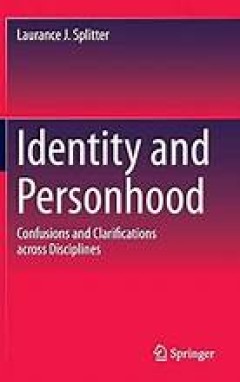
Identity and Personhood
This book approaches the concept of identity from both logical-linguistic and socio-cultural perspectives, and explores its implications for our understanding of who or what we persons really are. In the process, it bridges disciplines that often remain disconnected - most notably analytic philosophy and the social sciences - and offers a novel critique of citizenship and moral education, "iden…
- Edition
- 1
- ISBN/ISSN
- 978-981-287-481-8
- Collation
- Filosofi
- Series Title
- -
- Call Number
- 150
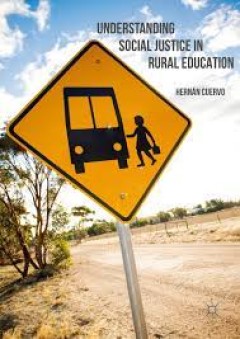
Understanding Social Justice in Rural Education
This book explores what social justice looks like for rural schools in Australia. The author challenges the consensus that sees the distribution of resources as the panacea for the myriad challenges faced by rural schools and argues that the solution to inequality and injustice in rural settings has to take into account other important dimensions of social justice such as recognition and associ…
- Edition
- -
- ISBN/ISSN
- 978-1-137-50515-6
- Collation
- -
- Series Title
- -
- Call Number
- -
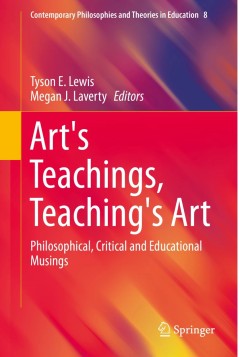
Art's Teachings, Teaching's Art: Philosophical, Critical and Educational Musings
This volume examines the interface between the teachings of art and the art of teaching, and asserts the centrality of aesthetics for rethinking education. Many of the essays in this collection claim a direct connection between critical thinking, democratic dissensus, and anti-racist pedagogy with aesthetic experiences. They argue that aesthetics should be reconceptualized less as mere art appr…
- Edition
- Ed. 1
- ISBN/ISSN
- 978-94-017-7191-7
- Collation
- XI, 249
- Series Title
- Contemporary Philosophies and Theories in Education
- Call Number
- 370 ART a
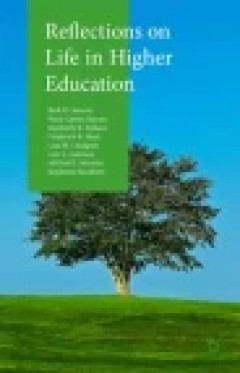
Reflections on Life in Higher Education
This book explores the challenges of an academic teaching career. The authors discuss the issues that may arise in the tenure process, scholarship activities, publishing, and providing service to their academic communities as well as how to keep teaching lessons relevant and fresh.
- Edition
- -
- ISBN/ISSN
- -
- Collation
- -
- Series Title
- -
- Call Number
- -
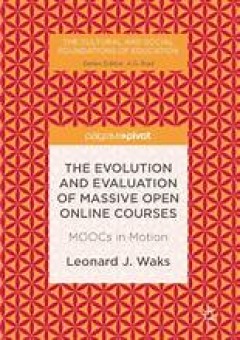
The Evolution and Evaluation of Massive Open Online Courses
This book offers a re-assessment of the educational and occupational value of MOOCs based on developments since 2013. When MOOCs appeared--amidst great fanfare in 2012, leaders proclaimed an educational “revolution.” By 2013, however, dramatic failures, negative research findings, and sharp critiques ended the MOOC hype. This book examines both MOOCs and prior distance learning innovations,…
- Edition
- 1
- ISBN/ISSN
- 978-1-349-85204-8
- Collation
- XVII, 136
- Series Title
- The Cultural and Social Foundations of Education
- Call Number
- -
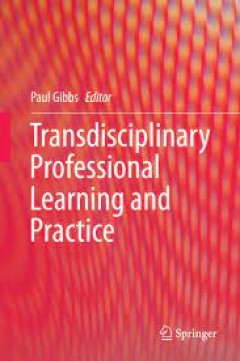
Transdisciplinary Professional Learning and Practice
This book presents thinking about and through transdisciplinary and professional development as an educative process. Rather than focusing on the delineation of the approaches offered, an analysis of these contributions points to commonality in those problems that benefit from a transdisciplinary perspective. The core elements of transdisciplinarity can lead to what might be called metanoia …
- Edition
- -
- ISBN/ISSN
- 978-3-319-11590-0
- Collation
- -
- Series Title
- -
- Call Number
- -

The Educational Significance of Human and Non-Human Animal Interactions
The Educational Significance of Human and Non-Human Animal Interactions explores human animal/non-human animal interactions from different disciplinary perspectives, from education policy to philosophy of education and ecopedagogy. The authors refute the idea of anthropocentrism (the belief that human beings are the central or most significant species on the planet) through an ethical investiga…
- Edition
- 1
- ISBN/ISSN
- 978-1-137-50525-5
- Collation
- XIII, 234
- Series Title
- -
- Call Number
- -
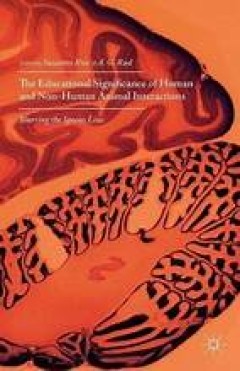
The Educational Significance of Human and Non-Human Animal Interactions
The Educational Significance of Human and Non-Human Animal Interactions explores human animal/non-human animal interactions from different disciplinary perspectives, from education policy to philosophy of education and ecopedagogy. The authors refute the idea of anthropocentrism (the belief that human beings are the central or most significant species on the planet) through an ethical investiga…
- Edition
- 1
- ISBN/ISSN
- 978-1-137-50525-5
- Collation
- XIII, 234
- Series Title
- -
- Call Number
- -
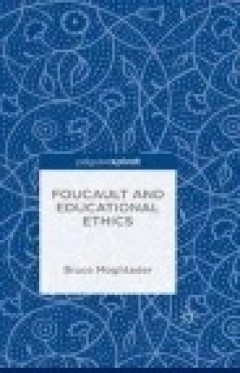
Foucault and Educational Ethics
In his works on ethics, Foucault turned towards an examination of one's relationship with oneself and others. This differs from the modern approaches that explore the relationship between and the responsibilities of actors to each other by adopting criteria. Ethical criteria engender assumptions about the actors by focusing on their responsibilities. Instead of relying on criteria, Foucault's w…
- Edition
- -
- ISBN/ISSN
- 978-1-137-57496-1
- Collation
- XIV, 112 pages
- Series Title
- -
- Call Number
- -
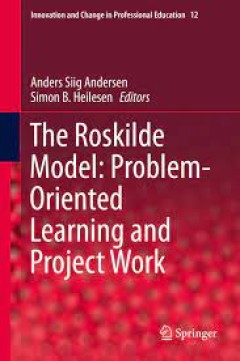
The Roskilde Model: Problem-Oriented Learning and Project Work
This book describes the pedagogical foundations of the Roskilde Model of education and educational design. It presents knowledge about how principles of problem-oriented, interdisciplinary and participant-directed project work may serve as a basis for planning and applying educational activities at institutions of higher learning. It discusses the dilemmas, problems, and diverging views that ha…
- Edition
- -
- ISBN/ISSN
- 978-3-319-09716-9
- Collation
- -
- Series Title
- -
- Call Number
- -
 Computer Science, Information & General Works
Computer Science, Information & General Works  Philosophy & Psychology
Philosophy & Psychology  Religion
Religion  Social Sciences
Social Sciences  Language
Language  Pure Science
Pure Science  Applied Sciences
Applied Sciences  Art & Recreation
Art & Recreation  Literature
Literature  History & Geography
History & Geography